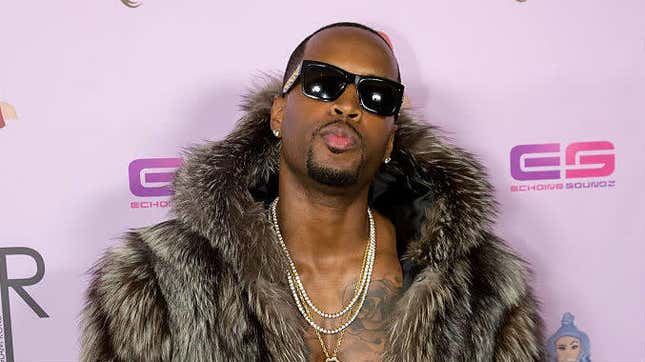
What do black pastors, Hasidic Jews and Safaree of Love & Hip Hop fame have in common? Apparently, a love of fur—and a determination to stop New York City lawmakers from banning fur sales in the Big Apple.
As they say, in politics, there are no permanent friends, just permanent interests, and according to the New York Times, this unlikely trio of interests converged in front of New York’s City Hall Wednesday to speak out against an effort to ban the sale of fur within New York’s five boroughs.
The bill under consideration would ban the sale of fur, except for used fur or new clothing made from used fur. Violators would face fines between $500 and $1,500 and having any money made selling banned fur confiscated by authorities.
The bill would not ban people from wearing fur.
Animal rights activists, including PETA, and with the support of City Council Speaker Corey Johnson, say the fur trade is cruel to animals. They’re hoping New York will go the way of Los Angeles, which passed a ban on the sale of fur that is to take effect next year.
“I think killing animals for fur is morally wrong,” Johnson told amNewYork. “We are more evolved and it is unnecessary. So many designers don’t use fur so we should focus on alternatives and stop killing animals just to make luxury items.”
But the fur trade, joined by a diverse group of supporters including Hasidic Jews, African-American pastors and Safaree, say not so fast. They cited the traditions and jobs created by a decades-old industry, as well as the religious and cultural traditions of various ethnic and religious groups.
As the Times noted:
New York City is the largest fur retail market in the United States, according to FurNYC, a trade group representing 130 fur retailers in the city. The 150 fur businesses in the city create 1,100 jobs and produce $400 million in revenue per year, according to the group.
Nick Pologeorgis, who runs a Manhattan-based fur business that’s been in his family for more than 50 years, said the proposed ban would hurt his staff of 20 workers as well as the factories he contracts with to make coats, vests and other apparel.
“This will impact the factories that I give a lot of work to, the people I buy lining supplies from,” Pologeorgis told amNewYork. “We do a tremendous amount of shipping through UPS and FedEx.”
Safaree, wearing a $55,000 lynx coat he bought especially for the occasion, questioned the legitimacy of a fur ban in a city known for being fashion forward.
“My stylist let me know about it and I was like, a fur ban in New York City? How could they do that in one of the fashion capitals, if not the fashion capital, of the world?” he told the Times.
And while the bill would not ban the use or sale of fur for religious purposes, Hasidic Jews, who often wear hats trimmed in fur, said a ban would just give bigots another reason to prey upon them.
“Once you start with one thing, where does it end?” Councilman Chaim Deutsch told the Times. “What is next? We can’t eat chicken? We can’t eat meat?”
Mobilizing Preachers and Communities, a group of black pastors against the ban, said fur is a prized possession among many in the black community.
“Fur is a sign of status, achievement, that we’ve made it against all odds,” the Rev. Johnnie Green Jr., pastor of Mount Neboh Baptist Church in Harlem, told the Times. “Show up to any black church on a Sunday in the winter, and you will see a heap of mink coats.”
Animal rights activists and fur ban opponents hurled slogans at each other in front of City Hall: “How many animals have to die?” vs. “Put people first.”
Supporters of the ban said the removal of skins to make fur is a barbaric practice.
“When you do the research, even with the best practices, it’s violent and inhumane,” Edita Birnkrant, executive director of NYCLASS, an animal welfare group that supports the ban, told amNewYork. “I don’t think there is a way to operate an industry that mass produces a product based on removing the skins of animals in a way that is humane.”
Green argued there were greater concerns at stake, telling the Times:
“I’m more concerned about saving black lives. When the activists are more concerned about saving black lives than black minks, let me know.”

